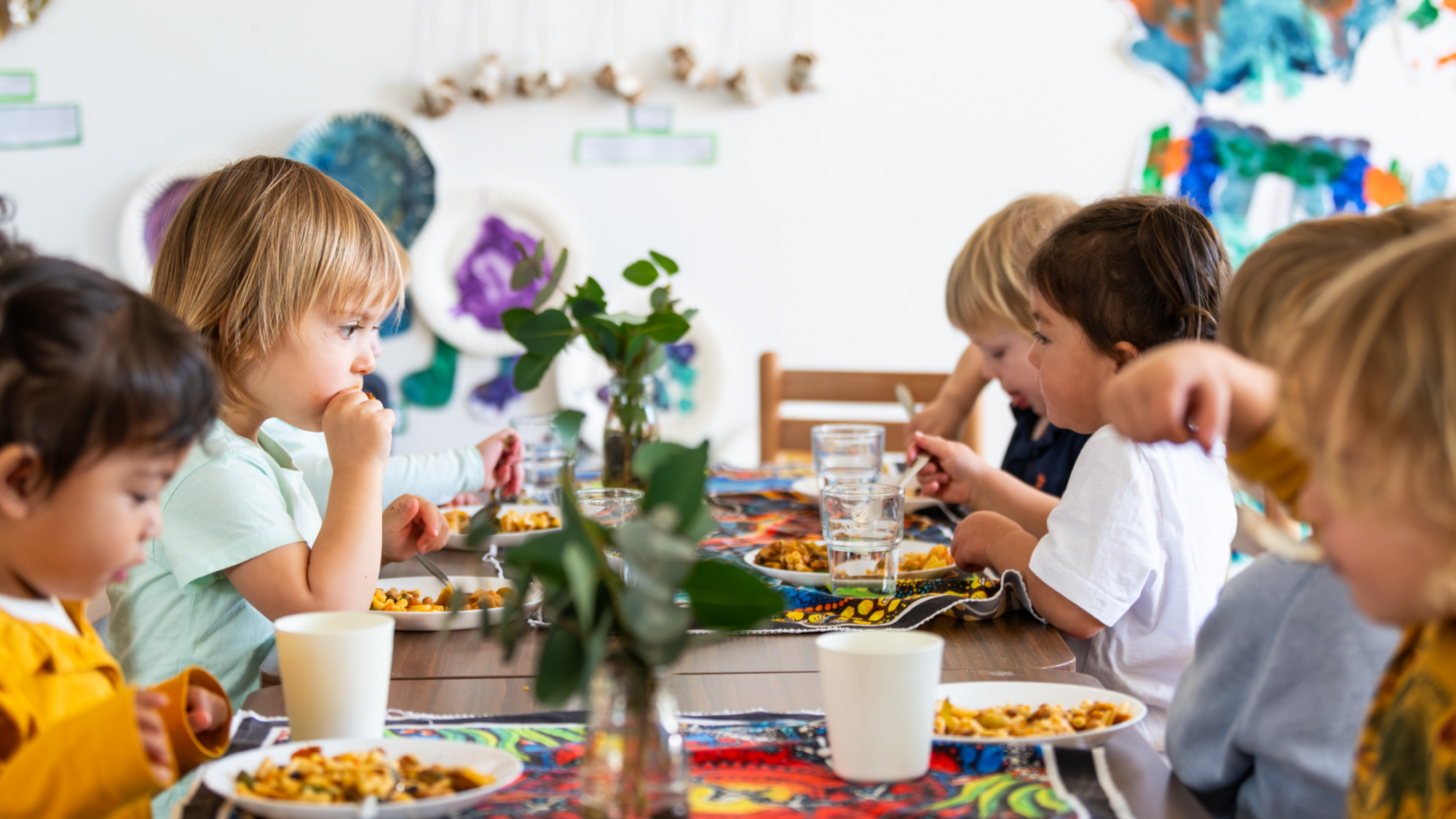This month’s Wonderlife blog is brought to you by Lauren, one of our passionate Educators at Wonderschool Woden.
At Wonderschool we prioritise mealtimes as it is an integral way for educators to slow down and connect with the children and embed quality rituals within the program. At all Wonderschool services we have professional cooks whose role is to work in partnerships with the children to create inclusive menus that are in line with the Australian nutritional guidelines. The role of the cook is important as it serves as the gateway for educators to engage in rich conversations with children about positive eating habits and create a strong relationship when it comes to eating food.
In the senior preschool room at Wonderschool Woden, the educators have been working alongside the children to create consistent and predictable rituals that surround meals and the way in which children are supported to develop integral self-help skills, accurate knowledge about food and to engage with positive language surrounding eating and nutrition. By preschool age, children have developed specific food preferences and can be reluctant to try new foods so educators play an important role in modelling positive language that surround mealtimes so that children can enjoy indulging in different types of foods. I was fortunate enough to sit alongside the children in our senior preschool space and observed how the children interacted with each other during lunch time.
The educators have been reflecting with the children and have been looking at how their routines and environments can be altered to support the “business” of the program. During reflective discussions, educators noted that the preschool children in the room can get caught up in what they are doing and claim they are “too busy” to eat during lunchtime. Knowing this the educators have integrated a progressive style of mealtime which supports flexibility for children and offers children the choice to finish what they are engaging with before sitting down and sharing a meal with their peers. The educators noted that since adopting this change in their routine, the children had been more engaged in mealtimes.
Before the children have their meals, they are supported by the lead educator to set up the table area. The children are involved in all aspects of setting up and preparing the tables from setting up the cutlery and placemats, picking fresh herbs from the garden and organising the chairs. Mealtimes became exciting for the children, and you could see that their energy shifted, the children were more present in the moment. The children were not rushed but were able to sit and talk with their peers, unpack the fun moments during the day and become immersed in the dining experience. Some children were heard encouraging their friends to try different types of food, that maybe they hadn’t been exposed to trying.
It is through creating consistent rituals and routines that educators can support the children to have ownership over their bodies and have a positive interaction with food and nutrition.
Explore the Wonderlife blog or connect with us on Facebook or Instagram for more helpful tips and to learn about what makes Wonderschool wonderful.
